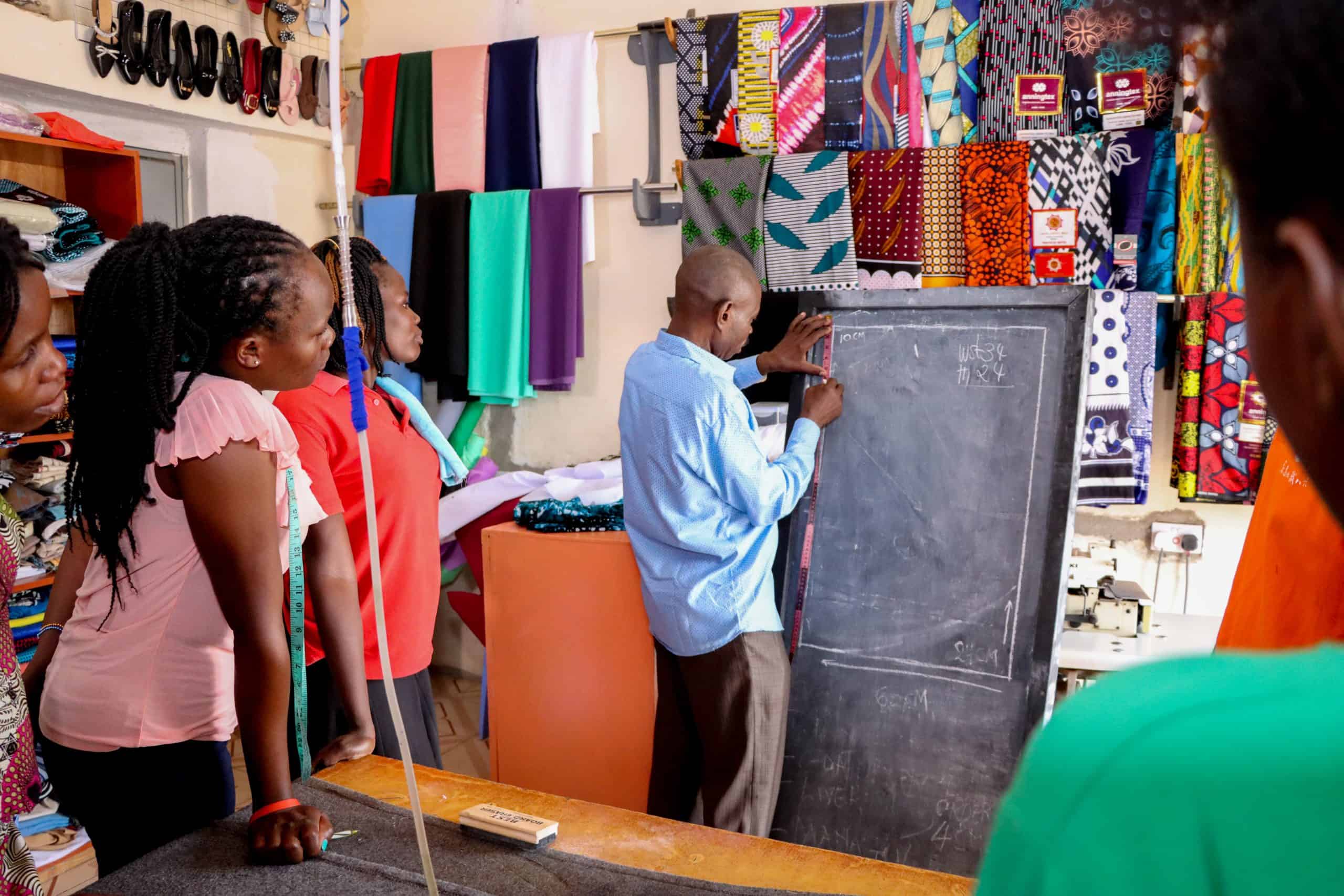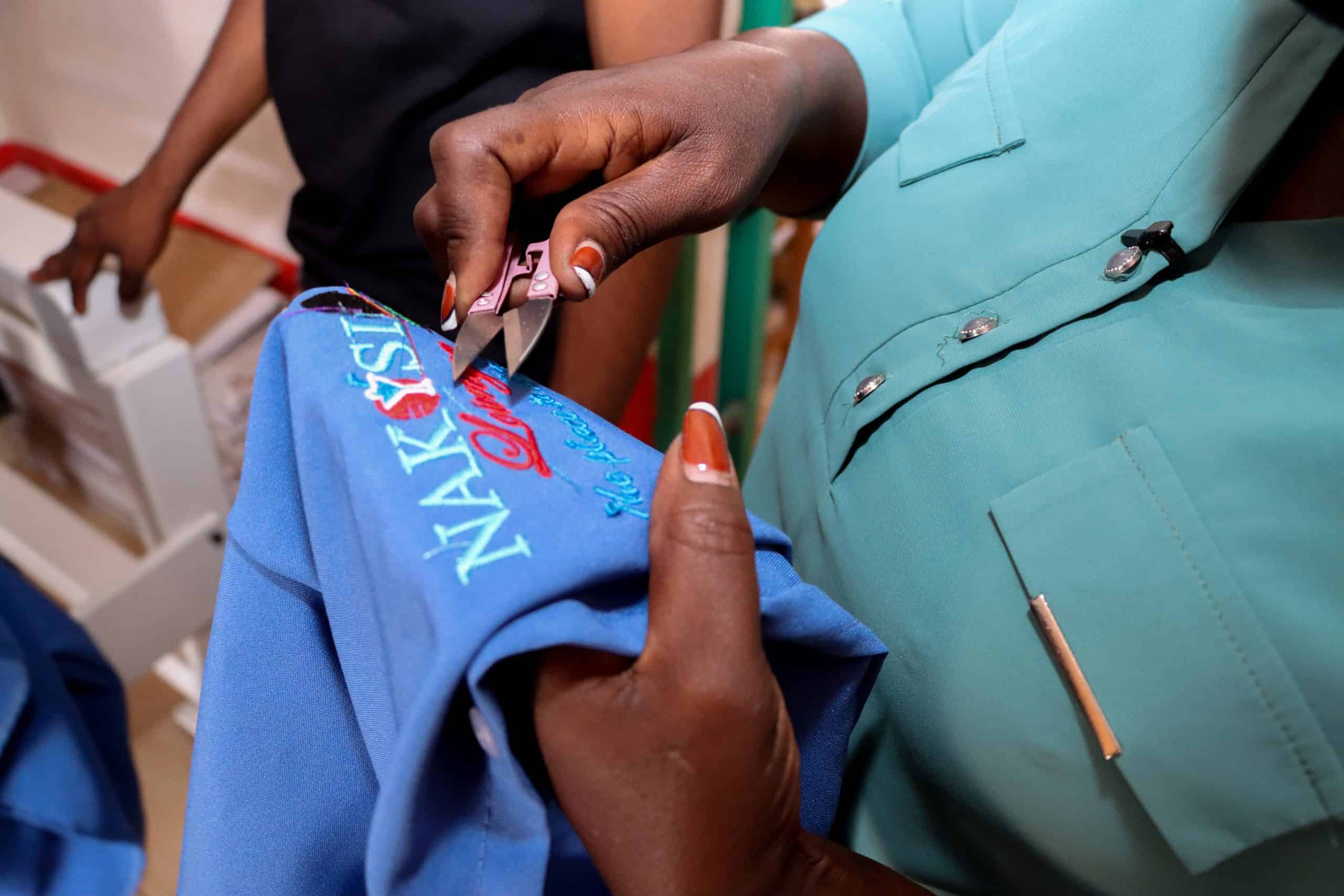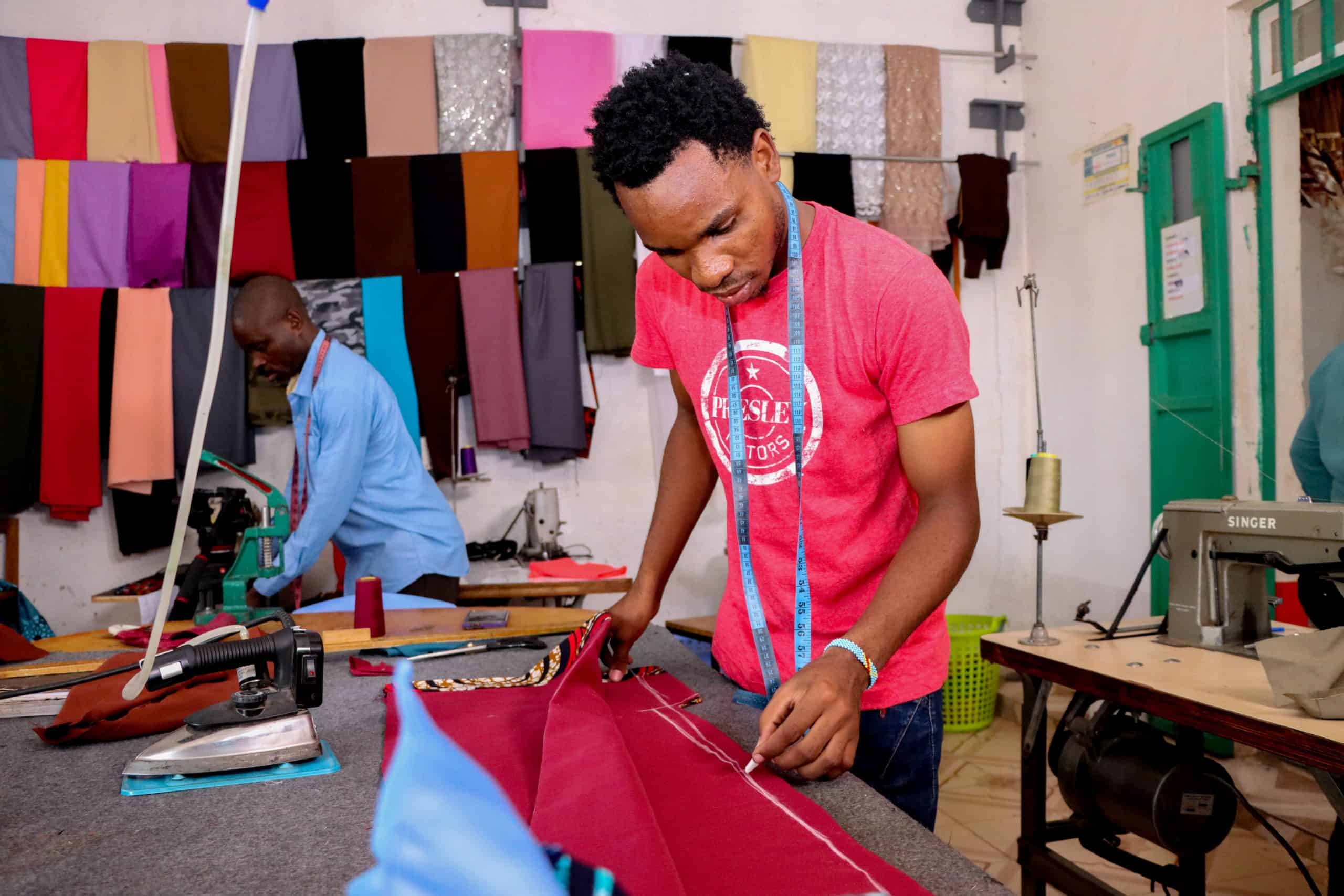Nancy Karambu Riungu, 52, was running a successful tailoring and fashion design business in Kakuma town in Kenya’s Turkana County, when two tragedies hit almost simultaneously.
The first was COVID-19, which forced businesses to downscale their operations due to restrictive measures implemented by the government to contain the global pandemic. The second was the demolition of a road reserve to pave the way for the expansion of the Lodwar-Kakuma highway.
Nancy’s Nemlon Enterprises Ltd. was among the many premises affected, casting a dark shadow on the future of the six employees and 38 students who considered it home.
“It was a terrible experience. Everyone was crying; the students cried as they left. Businesses were scrambling for spaces to relocate, but I had no money to rent an alternative place to continue with the business,” says Nancy.
Then, an unexpected call came. It was from the Kakuma Kalobeyei Challenge Fund (KKCF), announcing that she had won a grant through their Competitive Business Challenge to expand Nemlon Enterprises.
“You could see the excitement in the faces of students and employees when I gathered them to break the news,” she says.

With the grant, Nancy also bought electrical sewing machines, which improved business efficiency and reduced the turnaround time in the delivery of tenders. Today, Nemlon Enterprises can handle several tenders simultaneously, some involving the production of over 5,000 pieces.
“We also purchased more fabric and a machine that enables us to design logos and do branding. Before, we would take our consignments to Nairobi for branding, taking up much time and incurring huge transport costs,” she says, adding that more students have been absorbed in training.
Nancy initially trained as a nurse, but later decided to pursue a tailoring and dressmaking career after realizing the huge opportunity in Kakuma.
The support from KKCF has catapulted Nemlon Enterprises from a small business founded in 2014 to a household tailoring and training institute with an extensive distribution network across the region. The business is driving development and impacting lives in Kakuma through job creation and economic empowerment for refugees and host communities.
Nemlon Enterprises employs between 20 and 70 people from both the refugee and host communities, depending on order availability. When the orders are large, they work in two shifts: day and night.
Driven by the desire to excel in whatever she does, Nancy has provided many women an opportunity to earn livelihoods by training them in tailoring and dressmaking. “The people who put a smile on my face are the many Turkana women who come here when they don’t even know how to read and write. But with the support of translators, they can learn and acquire skills which they use to start their businesses after graduating,” says Nancy.
To accommodate a complex mix of students, Nancy has introduced a training model dubbed “Learn and Earn.” The model allows students from less fortunate backgrounds to train while getting paid for their services at Nemlon Enterprises.
“We introduced [clothing] repairs so that students who have acquired some level of skill can work and share the proceeds with the business while those at advanced levels or have duly completed the training are allowed to keep everything,” she explains.
Faida Ishara is a student in the program. A refugee from the Democratic Republic of Congo, she joined the program after her monthly allowances as a refugee were suspended for four months.
With the money from Nemlon Enterprises, she can support her family, which she says cannot meet its needs from the allowances meant to cater for food supplies. “The little I get from here helps a lot to buy food for the family. I am also able to take care of my personal needs like clothing,” she says.

Mugaragu Rodger, 23, also from the Democratic Republic of Congo, had prior training in tailoring and fashion design. He honed his skills at Nemlon Enterprises before being employed as an instructor.
Apart from earning a monthly salary to support his young family, Nemlon Enterprises has given Rodger the opportunity to interact with the host community. Previously, his interactions were limited to fellow refugees at the camp.
“Here, we work as a team and support each other in delivering given tasks, irrespective of our nationalities and social backgrounds. When the orders come in, we work on them together and share a lot. This has made us bond as a family,” he says.
Nemlon Enterprises is one of the businesses supported by KKCF under the Local Enterprise Development (LED), which targets small-scale entrepreneurs in Kakuma.
Brian Meme, the KKCF Program Manager, says businesses are critical for integrating the refugee and host communities and achieving sustainable development because they understand the market dynamics.
“These businesses are focused and well established. However, they lack capital and technical skills to run their operations efficiently. Therefore, supporting them will certainly translate to impact since they will continue providing their services on a larger scale,” he says.
The sky remains the limit for Nancy, and she has already set her eyes on making Nemlon Enterprises a fully-fledged vocational training institute. With additional support, Nancy hopes to provide opportunities for the youth in Kakuma, many of whom dropped out of school or completed secondary level but cannot pursue tertiary education.
